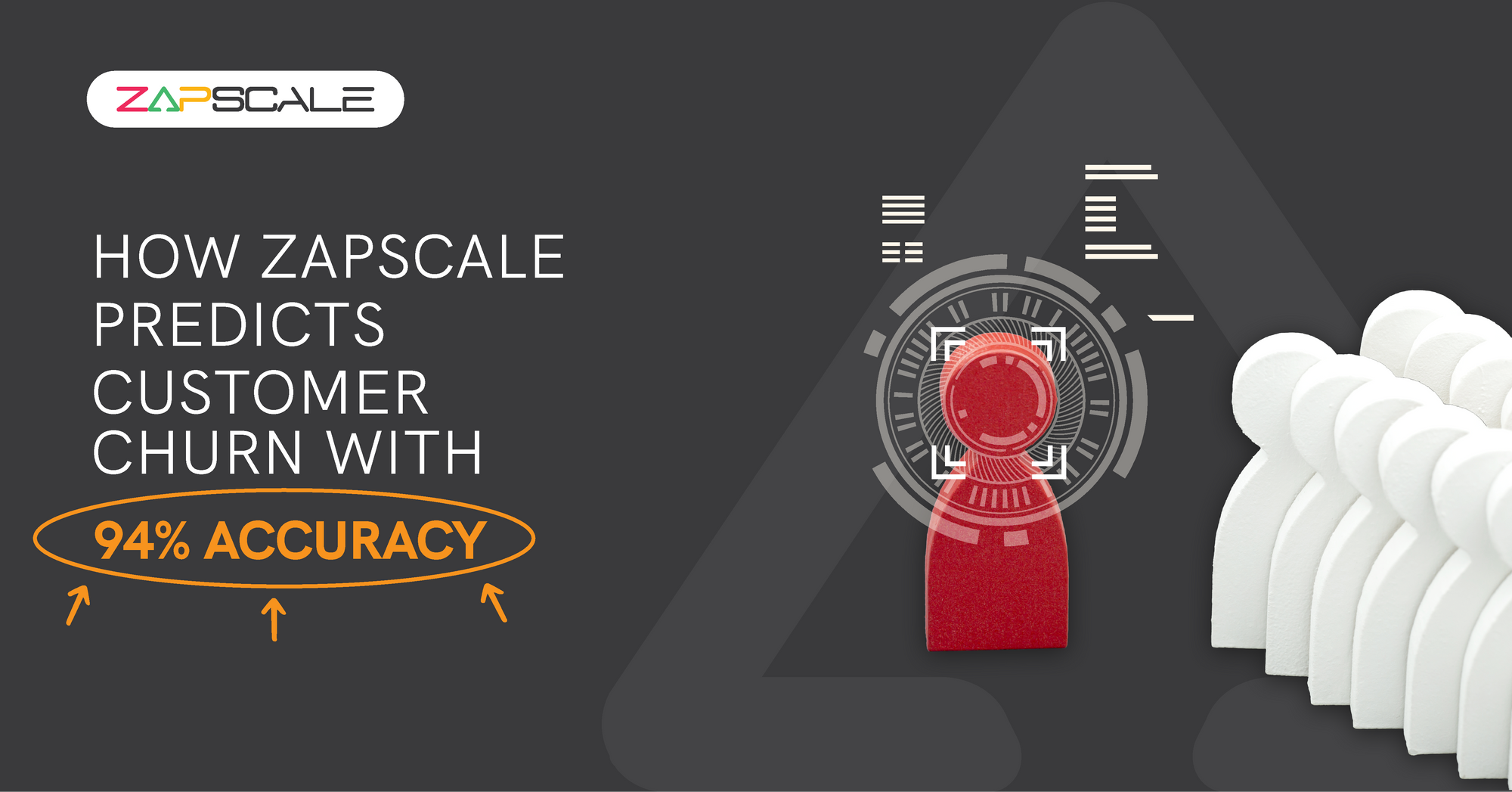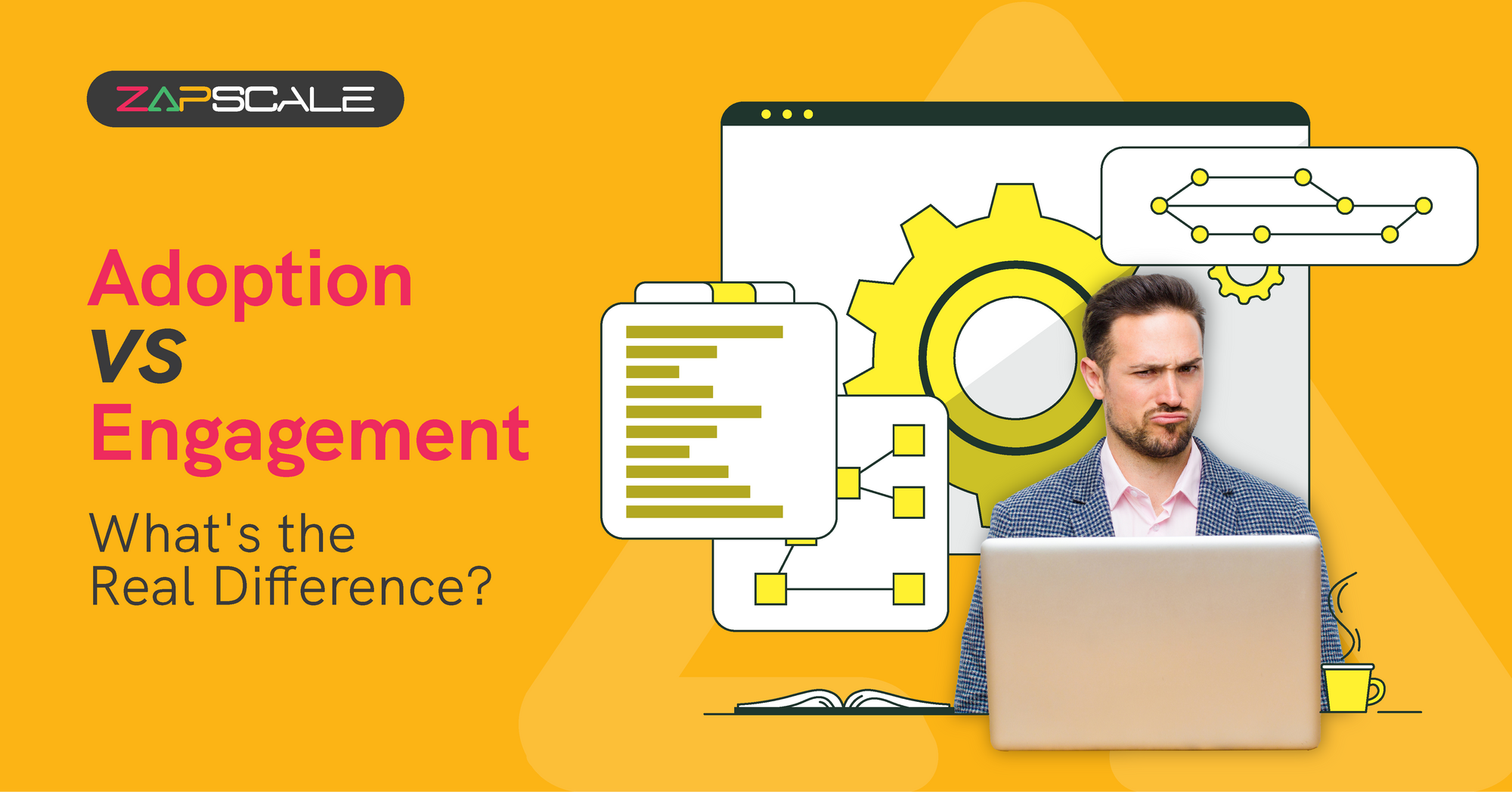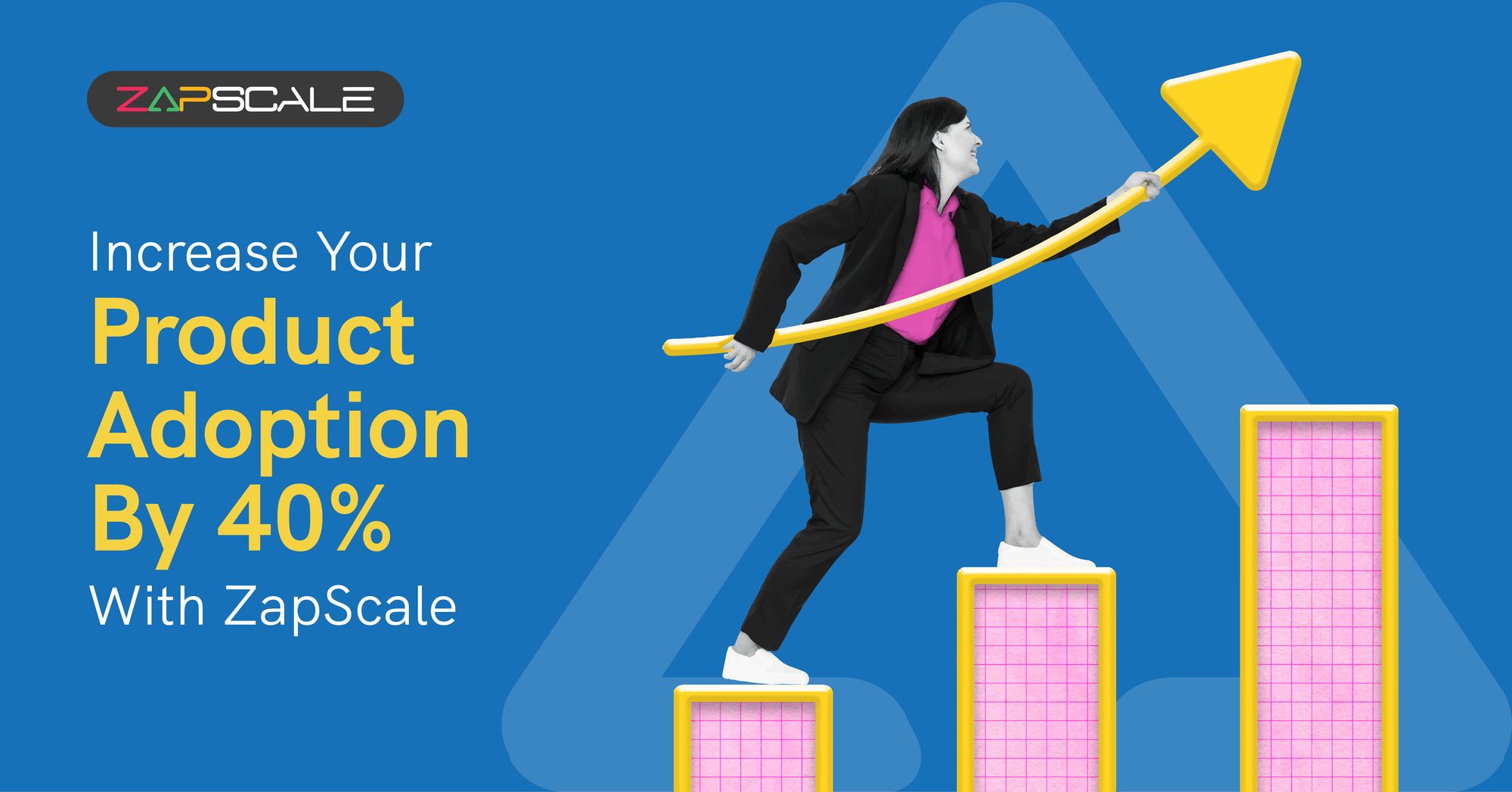CATEGORY > Artificial Intelligence
AI and Automation: The Dynamic Duo for Customer Success Excellence
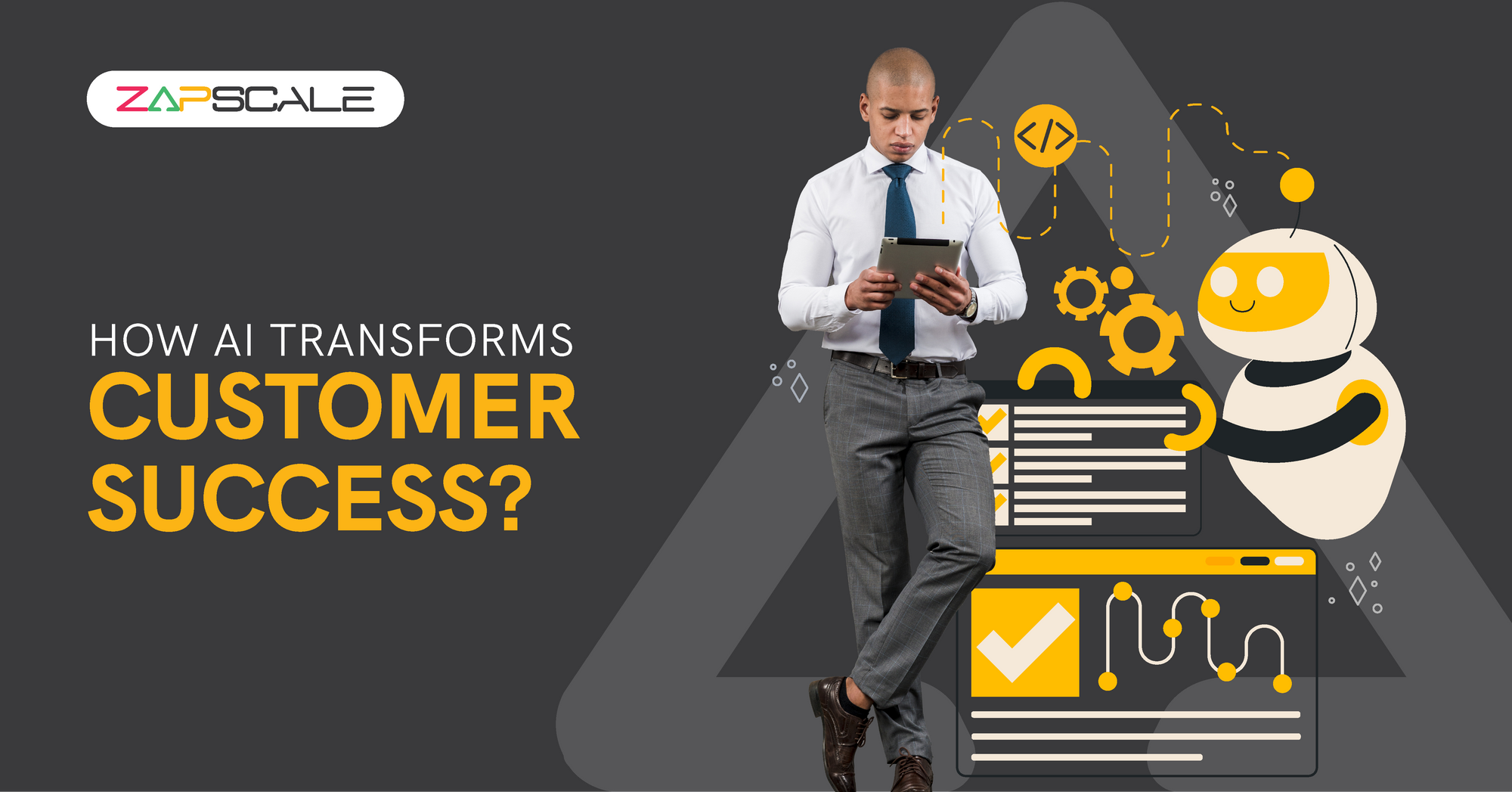
The field of Customer Success is being completely transformed by AI and automation. As an entrepreneur, how do you remain ahead of the curve? Discover below.
Understanding The Buzzwords: Automation, AI, And ML Explained
Automation, AI, and machine learning are interconnected technologies reshaping business operations. Automation eliminates the need for human intervention and streamlines repetitive operations. Consider it as teaching robots to follow simple principles, which speeds up tasks and lowers errors.
AI, aka artificial intelligence, seeks to emulate human intellect, including language processing, pattern recognition, and experience-based learning. Most AI today is "narrow AI," intended for specialized applications such as voice assistants and recommendation systems. Although useful, these AIs lack actual human understanding.
However, AI improves automation by allowing systems to make sophisticated decisions and adapt to changing circumstances, thus optimizing customer success with AI.
Machine learning is a subset of AI that trains machines to learn from data. For instance, Google Maps uses ML to predict traffic by analyzing historical patterns. While machine learning performs well with large datasets, it struggles with small datasets with numerous unique variants. Its applications include traffic forecasting and customer behavior analysis, making it an effective tool for insight and decision-making.
AI In Action: Personal Experience From The Front Lines
In my experience with Customer Success, I've personally seen how AI transforms data management. Understanding product usage and customer behavior is critical, but many customer success managers struggle with a mountain of data from many sources. AI-powered solutions have made data collection and analysis more efficient, allowing CSMs to better manage customer portfolios. With AI, I've discovered growth prospects and threats, thus boosting net revenue retention (NRR) initiatives. So, yes! Undoubtedly, there are numerous benefits of AI in customer success.
Using AI To Connect The Dots: Understanding Customer Aspirations
Improving customer engagement with AI and automation has become an easy affair! Previously, acquiring customer data was a time-consuming endeavor for CSMs as it required sentiment analysis and data mining across multiple platforms. AI now speeds up this process by combining insights into collaborative dashboards that convert data into actionable steps. AI enhances customer interactions by utilizing chatbots, providing real-time support, and guiding customers through their product journeys. This improves satisfaction and properly analyzes customer health scores.
AI tools like predictive analytics and sentiment analysis help businesses recognize trends and respond quickly to feedback. In addition, artificial intelligence enables customer segmentation, allowing for tailored offerings depending on behaviors. Companies can utilize AI to co-create value with customers, personalize interactions, and optimize experiences, resulting in increased loyalty and a competitive advantage in the market.
Manual vs. AI Health Scoring: Which Method Is More Reliable?
Should you choose the manual or AI health scoring approach? Let's look at how each strategy influences customer insights, efficiency, and proactive customer success participation.
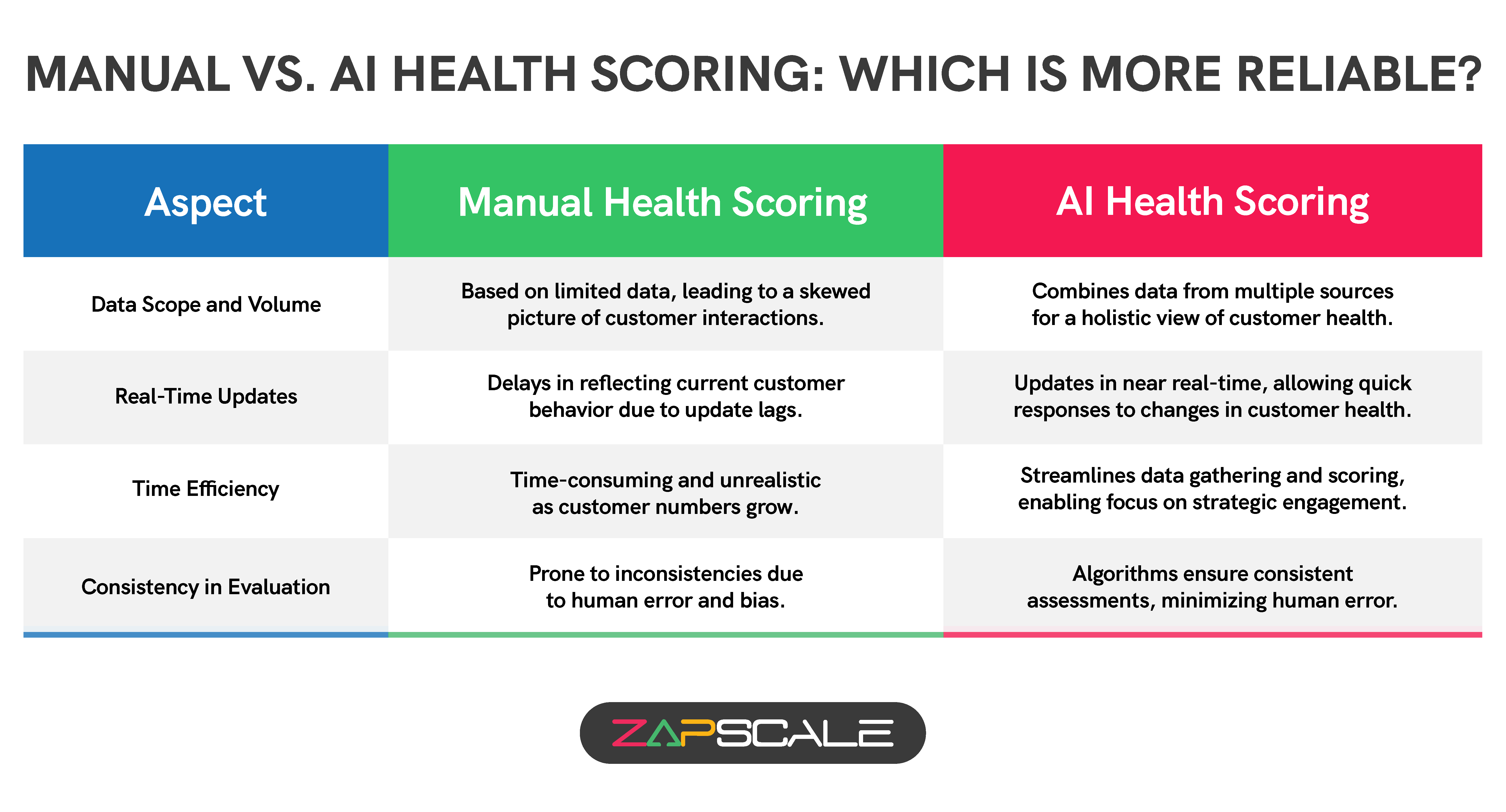
1. Data Scope And Volume
a. Manual Health Scoring
The assessment is based on limited data, giving a skewed picture of customer interactions.
b. AI Health Scoring
AI-generated scores combine data from multiple sources to provide a holistic knowledge of customer health.
2. Real-Time Updates
a. Manual Health Scoring
Falls behind in reflecting current customer behavior due to update delays.
b. AI Health Scoring
AI-driven scores update in near-real time, allowing CSMs to respond quickly to changes in customer health.
3. Time Efficiency
a. Manual Health Scoring
Becomes time-consuming and unrealistic as customer numbers expand.
b. AI Health Scoring
Streamlines data gathering and scoring, allowing CSMs to concentrate on strategic engagement and higher-value responsibilities.
4. Consistency In Evaluation
a. Manual Health Scoring
This can lead to inconsistencies owing to human mistakes and bias.
b. AI Health Scoring
Algorithms ensure consistent assessments while minimizing human error.
AI Meets Customer Support
Let’s explore how this cutting-edge technology reshapes the way support teams operate and interact with customers.
1. Optimized Workflows
AI streamlines assistance by directing inquiries to the appropriate agents based on condition and intent. This minimizes response time and ensures that customers receive timely, relevant assistance while summarizing tickets improves overall workflow efficiency.
2. Proactive Customer Support
With AI, support teams can shift from reactive to proactive approaches. Using real-time updates and health scores, CSMs may anticipate customer demands, increasing satisfaction and retention by making customers feel valued and understood before problems emerge.
3. Enhanced Customer Satisfaction
AI agents and chatbots give quick, 24/7 service, significantly reducing wait times. Prompt solutions meet customer expectations, increasing satisfaction and loyalty since customers value timely assistance without significant wait times or service delays.
4. Improved Agent Efficiency
AI tools release agents from routine chores, allowing them to concentrate on more sophisticated interactions. This transition results in more fulfilling positions, increased work satisfaction, and lower turnover rates among support teams, ultimately improving overall service quality.
5. Cost Reduction
Integrating AI into customer service drastically reduces operating costs. By automating basic operations, teams may manage more inquiries more efficiently, freeing up resources for difficult issues, increasing productivity, and allowing for reinvestment in other business areas for growth.
AI And Customer Churn: A New Approach To Engagement
Let’s discover how businesses can keep their customers “happier” with the support of robust AI tools.
1. Data-Driven Insights
AI analyzes massive quantities of customer interaction data to provide insights that assist CSMs in identifying possible churn concerns before they worsen.
2. Customized Communication
AI can segment customers based on their wants and habits, allowing CSMs to create tailored communications for each category.
3. Risk Prediction
With AI, employees can accurately predict customer behavior patterns and identify at-risk customers to tailor their engagement strategies accordingly.
4. Timely Renewals
By reviewing renewal trends, AI enables CSMs to communicate with customers at ideal times, boosting the likelihood of contract renewal success.
The Downsides Of AI And Automation
While artificial intelligence and automation in customer success are beneficial to both CSMs and customers, there are several crucial considerations.
For starters, AI systems must be constantly monitored for accuracy and updates, particularly when processes or products evolve. Second, CSMs' knowledge is critical, and they must have the final word, relying on their relationship skills as well as AI insights.
Finally, the efficacy of machine learning depends on the quality of the data utilized. To follow AI and automation best practices for customer success, CS leadership must strategically evaluate the accuracy and maintenance of various data sources. Balancing AI capabilities with human knowledge is critical for effective interaction with customers.
How AI Transforms Customer Success Careers
To succeed in your customer success career, begin by identifying manual processes that could benefit from automation or artificial intelligence solutions. This initial stage clarifies where efficiency can be gained. Next, investigate the available tools that meet your requirements. Many SaaS platforms now include AI functions, which help with automation. When choosing the best AI system, think about its compatibility with current processes, ease of use, and how well it tackles your specific obstacles.
How To Identify Your Perfect Fit?
Unlocking the potential of AI begins with finding the right fit for your organization. Here’s what you need to figure out to discover your “ideal” AI solution.
1. Assess Existing Software
Analyze your existing software for automation, workflow management, and machine learning features. Using these technologies can help you cut costs and streamline your customer success procedures.
2. Discover Integration Challenges
Consider how well a prospective AI system will integrate with your current software. Select solutions that provide seamless compatibility to prevent issues and increase overall productivity.
3. Evaluate Scalability
Choose an AI solution that can grow with your company. Ensure that it can withstand rising demand and respond to changes without requiring major updates or extra spending.
4. Be Informed
Keep up with the most recent AI advancements and trends. Knowing about new tools and features will allow you to make more educated decisions and select sustainable AI tools for enhancing customer success.
Conclusion
To truly leverage AI in customer success, identify areas where automation and AI can optimize workflows and improve customer interactions. Choose AI solutions that integrate seamlessly with existing tools and are scalable to support your company’s growth. Staying updated on AI advancements will ensure you can make informed choices that align with evolving customer needs and industry trends. Embracing AI thoughtfully empowers customer success teams to proactively enhance engagement, satisfaction, and loyalty, driving lasting value for both the company and its customers.
ABOUT THE AUTHOR
Sonali is a social media enthusiast and creative content writer with 3+ years of experience. With a passion for storytelling, Sonali delivers content that inspires, informs, and captivate readers.
Popular from Artificial Intelligence
Quality Content,
Straight To Your Inbox!
Subscribe for the latest blogs, podcasts, webinars, and events!

Write a Blog
If you have experience in CS and
a flair for writing, we’d love to
feature you.
Write to us on
hello@zapscale.com
